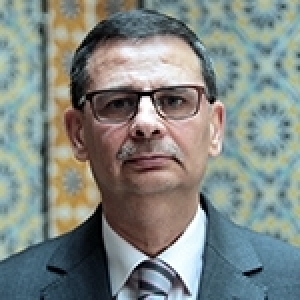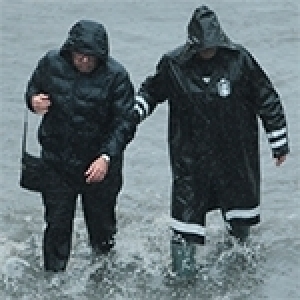Loujeine Boutar : Why Tunisia should NOT ease the lockdown?

By Loujeine Boutar - Management Consulting Associate at PwC - Lifelong Learner - The Wharton School of the University of Pennsylvania, the world's first collegiate business school.
Philadelphia, PA - On April 29th 2020:, the Tunisian government has announced a progressive lockdown exit that will happen in three phases between May 4th and June 14th. While I understand the economic and social pressure that has affected millions of Tunisians, I argue against this decision. The cost of reopening could be too high and I don't think the plan in place mitigates potential risks.
1- Lockdown exit anywhere is risky
Without social distancing, the virus spreads at an exponential level: meaning it spreads at a constant rate. Spread rate or "Reproduction rate" of the virus is estimated to be between 2 - 2.5.
This means that every infected person affects 2 other people on average. To use Bill Gates' illustration, if 100 people are infected today, 3200 will be infected in 40 days. In contrast, if we practice social distancing, only 17 people could be infected in 40 days.* We may be demoralized by the growing number of new cases and deaths but those numbers would be much worse without social distancing measures.
The spread of the virus could be even more dangerous if it mutates into more a lethal form. I don't know much about the science of covid19 and the risk of its mutation. But I know that this risk manifested itself tragically in the 1918 pandemic - known as the Spanish flu (even though it is not a Spanish flu). The first wave of the virus started almost asymptomatic, then mutated into a more dangerous form in a second wave, appearing simultaneously in the African, American and European continents and killing millions. A lot of places (at least in the U.S.) practiced "social distancing" and just as they started reopening the economy, a third wave of the virus hit again. While both viruses are different and the 1918 Influenza was exacerbated by World War I, I do believe we should learn from the past and not take any flattened curve at face value.
2- Lockdown exit in Tunisia could be catastrophic
Our healthcare system does not have the capacity to handle a high peak; I don't think I am breaking any news here. However, I would like to translate this into numbers.
On April 28th, the ministry of health counted 17 out of 93 Covid-19 cases in Intensive Care. If one day, we find ourselves with 3,200 cases, we can estimate 585 people in need for Intensive Care. On the supply side, the Covid-19 hospital in Tunis - "Abderrahman Mami" - only has 20 Intensive Care beds. I let you do the math here.
This is only one example and I have not talked about shortage of ventilators and other medical equipment, regional disparity in access to healthcare, or the struggles of the underserved non-covid patients even with this current "manageable number".
I heard some inspiring stories and good measures in hospitals (like establishment of covid+ and covid- patient journeys) but I am afraid that we would be helpless if the situation were to blow out of proportion.
''Everyone is reopening the economy, even Italy and France - why not us?"
First, Italy and France are not everyone. Second, we are not Italy or France: our circumstances are different. The fact that they had it worse than us so far doesn't mean that we are overall better equipped. In fact, we are not - as illustrated by the different challenges I am highlighting.
''When should we exit the lockdown then?"
Ideally, in one of three conditions: (1) A vaccine becomes available, (2) an effective treatment becomes available, or (3) testing becomes accessible by everyone at no cost (including time cost) so that only confirmed cases stay home.
Unfortunately, these scenarios are currently far from reality. So I think we can stretch the lockdown period at least a big longer and mitigate economic effects by distributing direct payments to the lowest income groups and people most impacted by the crisis, including employees of the informal sector. This is one of the policies that United States has implemented to fight the economic impact of Covid-19. While we don't have the United States' budget or ability to borrow, I think we can do more by focusing more of our current resources, centralizing fundraising efforts, applying for more support from international organizations, and collaborating with the private sector to develop technology innovations that could help with the distribution efforts.
3- Flaws of Tunisia's reopening plan
In addition to my disagreement with the lockdown exit in principle, I think the plan in place has multiple flaws.
The plan is not well-targeted
First, most businesses and enterprises are reopening in this progressive plan: government's agencies, large enterprises and even shopping malls are reopening. Not only are we taking the risk of causing high density, we are also signaling that it is now acceptable for a large number of people to be in one place.
Second, since we are experiencing a "demand shock" nationwide and worldwide, production will not translate into sales for everyone. I think it would have been better to account for this factor in defining each phase to avoid the risk putting a large number of people at risk without realizing the benefits.
Third, the differences between phases seem arbitrary to me. What does it mean to reopen companies at 50% capacity? How can we monitor 50% capacity in construction - an industry in which workers face multiple risks already? If we open administrations with only 50% of the staff, will this protect people or will it mean that lines will double in length?
The plan will be logistically challenging
A Lilet Salalah plan: the first lockdown exit phase is starting on May 4th, following an announcement on April 29th. Only five days are required for administrations and businesses to manage their resources and put in place safety measures to protect their workers and customers. If we followed France's steps in reopening their economy, we did not need to outpace it.. While we do have tendency of taking last-minute decisions for immediate implementation - except consequences could be disastrous this time.
Additionally, I don't think that our current system and infrastructure can properly handle the logistical requirements of this plan. In particular,
I am wondering how any measures could be enforced in our struggling public transportation system. And I am even more uncomfortable with any idea of "permits". Permit means bureaucracy, bureaucracy means "unresolved" and/or "crowded places".
The plan requires a more solid communication strategy
Considering that everyone is longing to going back to normal, easing the lockdown may give people too much hope too soon. Therefore, we would need a strong awareness campaign to counteract the comfort that people may perceive following the reopening. If I hear about reopening one time, I would need to be reminded of the risks a thousand times.
Maybe there is a strong campaign that I am not seeing because I am currently not in Tunisia. But I am not under this impression. I think the government should at least be clear with the general public that (1) reopening the economy should not mean stopping social distancing, (2) business owners have the discretion of deciding when it is safe and beneficial for them to reopen so they only do so when they are ready without external pressure from employees or external organizations.
It is too soon to include education
From the bottom of my heart, I wish we had the infrastructure, resources and training in place to support distance learning. No child should be left out of school for a long time. No student should see all their efforts "wasted" in a costly year that doesn't count. However given the resource constraints, it will be difficult to resume university classes and to administer large-scale exams safely. And since many students live with older parents and family members, "saving the year" could come at the expense of "saving lives".
However, I don't think education-related measures should be binary. Instead, current circumstances should invite us to think differently and creatively. For example, current decisions assume that school cannot resume in the fall because the new academic year starts in September. But this is not fixed. We should question our assumptions and rethink our premises instead of implementing a risky situation driven by superficial boundaries.
Overall, I think Tunisia has shown resilience and solidarity, and has proven its ability to innovate since the start of the crisis. But I think the risks of reopening the economy are real given the nature of the pandemic, the resource constraints and the current plan in place.
Loujeine Boutar
* Assuming social distancing successfully brings transmissibility under 1
- Ecrire un commentaire
- Commenter

Bravo pour cet article Loujeine. Hope you are well and safe. Boussettes kbar

Thank you for this excellent analyses. But récent history has learnt us that tunisians are capable of doing the impossible/

Thank you for your contribution. Though, it is wrong to claim that the reproduction rate is between 2 and 2.5. Wearing masks and keeping social distancing makes the reproduction rate much lower (most probably less than 1). Also, it’s very surprising that you completely overlooked three important facts: (1) No evidence was provided that the virus is widely spread in Tunisia. In contrary, the number of deaths is ridiculously low, (2) A significant portion of the population has no fixed income. Many families should struggle every day for ensuring their basic needs. Lockdown generates further misery. (3) It is very likely that during the lockdown many vulnerable people passed away because of a lack of medical assistance.





























